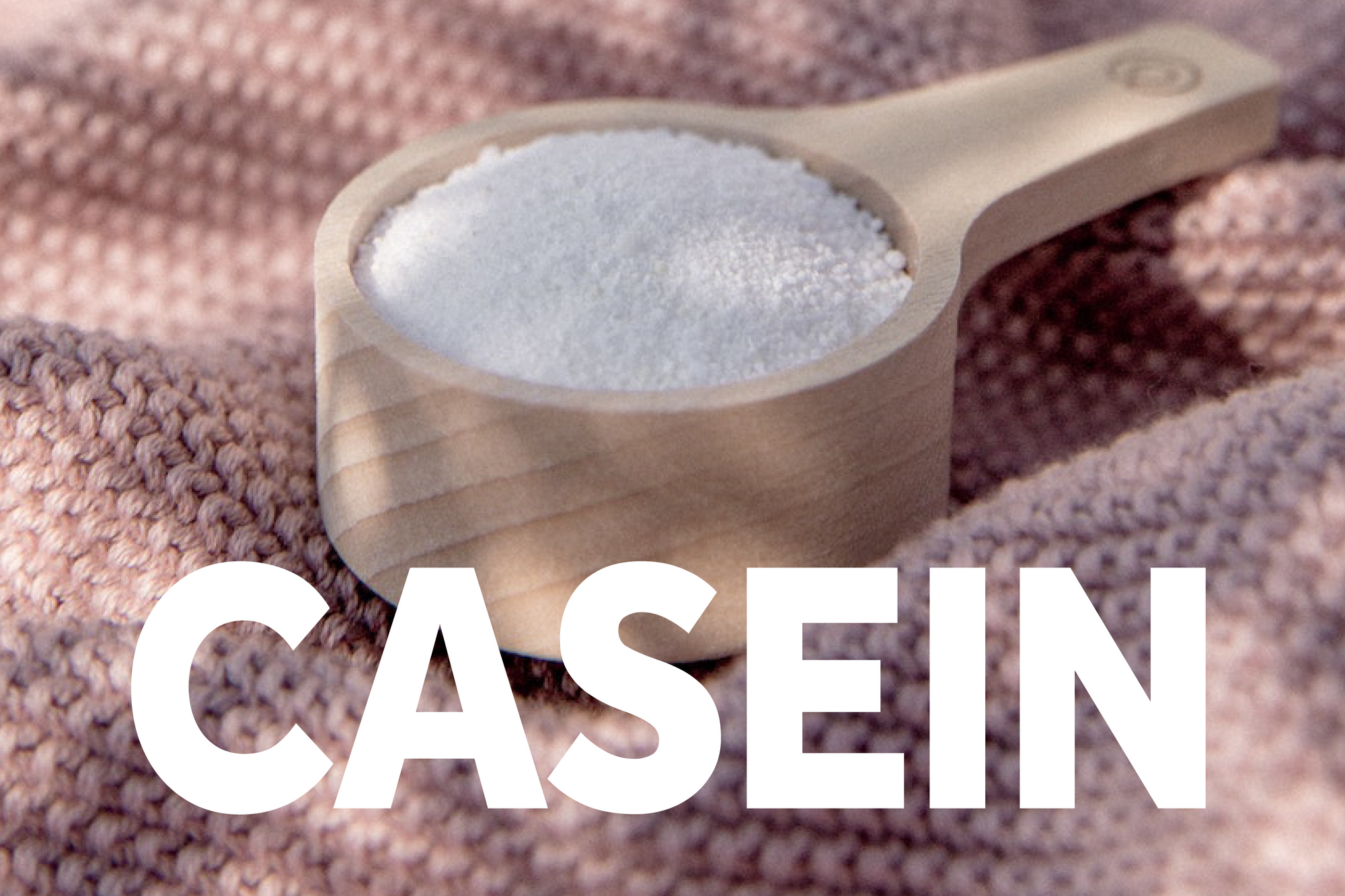We’re back again with another deep dive into our wealth of natural and science-backed ingredients. This time, it’s the turn of Casein.
That’s right, we’re talking protein. Not whey protein, as you might expect… but the letter known dairy protein, Casein. It’s in The Strong Protein, and in our opinion, it’s super underrated.
Quick side note before we begin, though – it’s not suitable for vegans due to its dairy basis. So, keep that in mind.
What is casein protein?
As we’ve said, Casein is a dairy protein that slowly releases amino acids into the body. Interestingly, casein is actually the property in milk that gives milk its characteristic white colour.
What is so special about casein protein?
Aside from just being a complete protein source, casein protein contains various other ingredients that have been reported to have major health benefits. Let’s take a look at a breakdown of one standard scoop of casein, shall we?
One standard scoop of casein protein contains:
- 24g of protein
- 3g of carbohydrates
- 1g of fat
Aside from these exact measurements, casein contains a healthy amount of calcium, too!
The benefits of casein protein are pretty extensive (which is not surprising, as the consumption of cow’s milk has long been considered good for bone health), and as a result, it is widely recommended to integrate casein supplements into your diet for optimum health and wellness.
What are the main casein protein benefits?
Taking protein is always beneficial, but why is that, exactly? Here are our favourite health benefits (and really, reasons as to why you should start implementing The Strong Protein into your diet)
- Supports muscle recovery
- Enhances muscle growth
- Maintains protein consumption for hours
- Improves athletic performance
- Reduce symptoms of diabetes
- Casein is an example of a full protein source
- Help manage side effects of liver disease
Alongside these pretty rad casein protein benefits, casein is unique in that as a protein, the ingredient provides the body with all (yes all) of the amino acids necessary to help your body build muscle.
What’s more, is that casein protein is not as quickly digested, which means that a casein supplementation like The Strong Protein, if enjoyed at breakfast or in the morning, can keep you feeling full and energised all throughout the day.
What is the difference between casein protein and whey protein?
Unlike its dairy counterpart whey protein, casein is 80% of the milk protein, whereas whey is just 20%. As a result of these differences, casein is a slowly digested protein (as we’ve noted) which provides some great benefits in comparison to whey’s fast releasing protein make-up.
Research into casein protein benefits and effectiveness
It’s the Innermost way to make sure that all our ingredients are natural, science-backed and proven to be effective. So, with that in mind, it’s only right for us to show off some of the research behind casein and its benefits, to get you making the most of this incredible ingredient in your day-to-day diet and exercise routine.
The debate between casein protein vs whey protein is one that has been extensively researched for some time now, with investigations comparing time of consumption, gender, exercise and more. One study, published in the Journal of Sports Science Medicine, investigated the effects of pre-and post-exercise consumption of casein protein, vs that of whey protein, to measure any potential differences in performance of a group of female athletes attending college.
The study aimed to get to the bottom of which of the two proteins are best, with both being hugely popular in the sports and performance supplementation world, finding that there was a distinct difference between taking the protein before and after resistance training, with post-workout consumption resulting in greater performance results.
A further study, published in the Human Kinetic Journals, supported this finding, showing that pre-sleep and post-workout consumption of casein protein hugely accelerated recovery in football players, suggesting that the protein has practical applications in preventing injury, supporting recovery and maintaining performance in high performance sports players and athletes, too.
References
- Wilborn, C. D., Taylor, L. W., Outlaw, J., Williams, L., Campbell, B., Foster, C. A., ... & Hayward, S. (2013). The effects of pre-and post-exercise whey vs. casein protein consumption on body composition and performance measures in collegiate female athletes. Journal of sports science & medicine, 12(1), 74. Click here.
- Abbott, W., Brett, A., Cockburn, E., & Clifford, T. (2019). Presleep casein protein ingestion: acceleration of functional recovery in professional soccer players. International journal of sports physiology and performance, 14(3), 385-391. Click here.



















